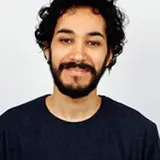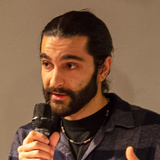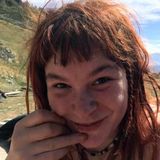In activism we’re mostly focused on challenging that which oppresses, disrupting the status quo and provoking the powers that be. But what comes afterward? We’re currently living in a country where every square meter is framed and owned. The ability to use space freely is lost, where people and non-humans aren’t a match for the interests of big capital. Since the simultaneous rise of colonialism and capitalism five hundred years ago, we’ve lost the commons which functioned as a central part in our self-sufficiency and reciprocal way of life, where we give back instead of only taking from nature. To counter this, we’ll playfully imagine a just future together. As playing enables us to step outside of the way our minds have been wired. What kind of relationship do we have with land if this is not seen as human ownership? What will happen to the way we meet one another? And how can we restore what has been damaged? Let’s picture land without ownership as an act of resistance in itself.
You can read the retrospective of the program here!
This session is the second programme of a three-part series, called ‘Speak to your imagination’, in which we will playfully consider how our society can be shaped differently. Do not expect a standard panel but a conversation in which everyone can participate. The interactive part of the programme is optional. If you only want to listen, you can.
Each speaker will discuss one historical, current or imaginative case that, for them, embraces the image of land without ownership.
Only the sound will be recorded, so that Deedee can write an article about the program afterwards.
Case 2: Rural commons – Al Masha
Zouhair Hammana will talk about Al Masha, an example of how decolonial communities relate to land by equally distributing it among farmers. Al Masha is resurrecting since the Arab Spring, as it’s been oppressed by colonialism. It’s a version of commons where all is owned by the people who cultivate it at that moment. This causes a rotation of who takes stewardship over the land and an equal say among everyone. During this case we’ll rethink possession of rural land. What does it mean to own anything at all? What would it mean if we let go of claiming land? How can we let go of the idea of staying in one place?
Case 3: The ADM community
Sara Calmeijer Meijburg is a new member of the ADM-community, based in Amsterdam. In 1997, the Amsterdam Do-It-Yourself Society squatted a 45-hectare shipyard in Westpoort, where about 100 people subsequently moved in based on anarchist ideals. In 2018, the community was told that the owners of the land had more rights than the people who had been living there for 21 years. The subsequent eviction of the ADM community took place on 7 January 2019, after which the municipality of Amsterdam offers a two-year contract as an emergency shelter at the Slibvelden in North. The ADM community then begin a temporary rebuilding there, this time under the management of the municipality of Amsterdam, which owns the land. With this case will discuss how ideal community living would look like in a post-capitalist world. How can we imagine community living without ownership of the land? What would happen to our lives if we have more time to be part of our direct environment? What happens to the work/living divide? And our social ties?

Havanas’s unique agricultural infrastructure emerged from punishing trade sanctions following the fall of the USSR but today provides an exemplary precedent that could be applied worldwide.

The Arabic term Al Masha refers to communal land equally distributed among farmers. Al Masha can only exist if people have decided to cultivate the land together. The moment they stop cultivating this land, they lose possession of it.

After 20 years, squatters occupying the Amsterdamse Droogdok Maatschappij former shipyard have been ordered to leave










